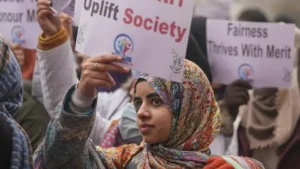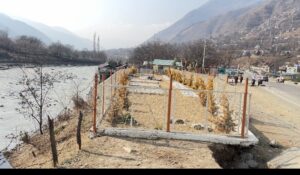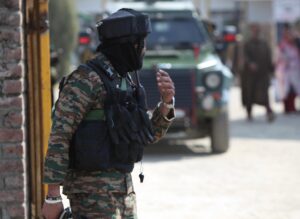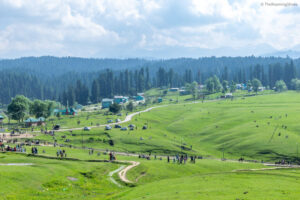The Role of Core States in Revitalizing the Islamic World Order
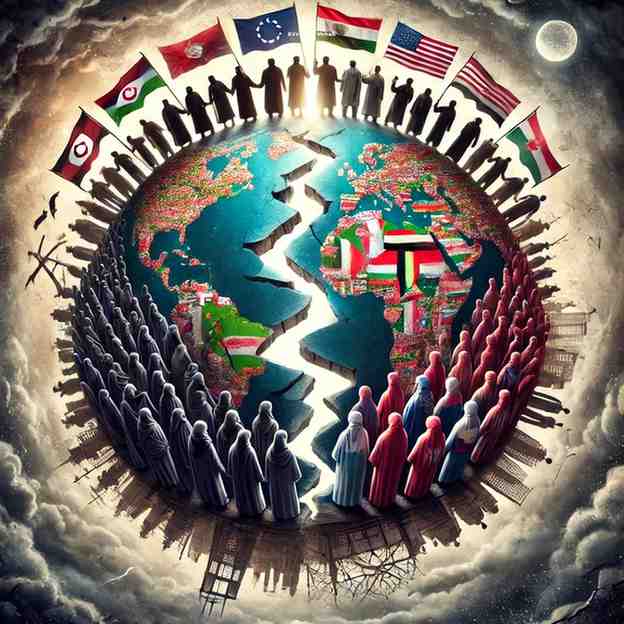
Opinion by| Farooq Ahmad Lone
In his famous book The Clash of Civilizations, Samuel Huntington argues that major conflicts of the 21st century will occur between civilizations. While he does not exclude the possibility of conflicts between nations belonging to different civilizations, he contends that such conflicts will stem from deeper civilizational fault lines. Huntington further asserts that civilizations with a leading nation—such as the USA for the Western civilization, China for the Chinese civilization, and India for the Hindu civilization—will be better equipped to lead and protect the nations within their respective civilizations. On the other hand, civilizations like the Islamic civilization, which lack a core leading state, will remain ill-equipped to defend and guide their member nations. This framework helps explain the Muslim world’s passive stance during the recent crisis in Gaza, where it acted as a helpless spectator. While thousands of Palestinians were killed and over one hundred thousand brutally injured in Israel’s ongoing war on Hamas, the Muslim world could do little more than issue condemnations. This unfolding humanitarian crisis has forced Muslims across the globe to reflect deeply on the global standing of the Islamic civilization and the role of powerful Muslim states such as Saudi Arabia, Turkey, and Pakistan. I, too, have been pondering the weakness of the Ummah and possible remedies, and have spoken with numerous scholars and experts from the valley and beyond to gain a broader perspective. Many scholars emphasize the formation of a bloc of strong Muslim states as a step toward strengthening the global standing of the Ummah. Some analysts also suggest that Turkey has the economic and military potential to lead the Muslim world in the right direction. In this article, I will explore practical steps that sincere leadership within the Muslim world can take to strengthen the global position of the Ummah and solve its political problems independently.
Formation of a Muslim bloc with economic and military strength: Considering the geographical dispersion of Muslim states across Asia, Africa, and the Arab world, the formation of an institution similar to the European Union—which was established by European countries in 1993 despite historical differences—is difficult. European countries were located on the same continent and had established democracies, making the formation of institutions like the EU and military alliances like NATO feasible. The Muslim world, however, is neither located on a single continent nor composed of strong democracies. Therefore, forming a unified and powerful institution or military organization remains a challenge. However, this does not rule out the possibility of creating a bloc of Muslim countries with sufficient economic and military capabilities. Nations such as Turkey, Saudi Arabia, Pakistan, Iran, Indonesia, and Azerbaijan could attempt to form such a bloc to safeguard the interests of the Muslim world and act as its guardian. Recent attempts by Turkey to create a Muslim bloc are encouraging, and Saudi Arabia is also making efforts to lead the Arab world and broaden its influence across the Muslim world.
Acting as leading or core states: While several Muslim countries such as Turkey, Saudi Arabia, Pakistan, Indonesia, Iran, the UAE, and Qatar have the potential to become leading states within Islamic civilization, most—except Turkey and Saudi Arabia—lack the necessary capabilities to fulfill this demanding role. Saudi Arabia, with its strong economy and influential religious standing, is a solid candidate to become a core state. It is already a major regional power in the Arab world and plays a leading role in the Organization of Islamic Cooperation (OIC). The Kingdom is also investing billions of dollars in defense to acquire cutting-edge military technology, boosting its hard power. Additionally, Saudi Arabia’s abundant oil resources provide it with considerable political leverage, while religious platforms like Hajj and Umrah can be utilized to strengthen its soft power and guide Muslims in the direction of the Qur’an and Sunnah.
Turkey is another strong contender to lead the Muslim world, with robust economic and military capabilities, a strategic geographical location, and historical significance. Samuel Huntington himself identified Turkey as a core state within the Islamic world, referring to it as the “center of gravity” among Muslim nations. The philosopher-poet Dr. Muhammad Iqbal also expressed admiration for Turkey in his The Reconstruction of Religious Thought in Islam, stating, “The truth is that among the Muslim nations of today, Turkey alone has shaken off its dogmatic slumber and attained self-consciousness.” In addition to its economic and military strength, Turkey has actively worked to lead global humanitarian efforts, providing aid to Muslims and people of other religions during times of crisis and natural disasters. Over the past few decades, Turkey has also gained considerable soft power through media, cinema, and tourism. Whether the Turk of the 21st century can meet the challenges of the Muslim world with wisdom, reason, knowledge, science, technology, and faith remains to be seen. The world will watch closely to see how Turkey guides the Ummah back to strength and dignity.
Author: Farooq Ahmad Lone can be reached at lonefarooqahmad80@gmail.com


